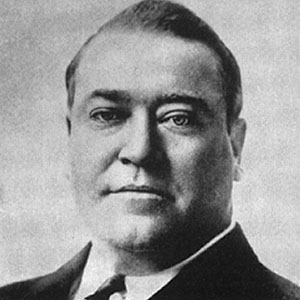Thomas J Pendergast was a powerful political boss in the Democratic Party in Kansas City and Jackson County, Missouri. His political organization, which became known as the “Pendergast machine,” reached its peak during the Progressive Era and the Great Depression.
Early Life
Thomas Joseph Pendergast was born on July 22, 1872, in St. Joseph, Missouri. His parents were Irish immigrants, and he was one of nine children. After attending school, Pendergast held a series of odd jobs. He moved to Kansas City in 1894 to work for his brother James, who owned a hotel and saloon. Tom Pendergast initially worked as a bartender and later became the bookkeeper.
The saloon was located in an industrial, working-class area known as West Bottoms, which was bordered by the Missouri River and the Kansas state line. In 1892, James was elected alderman of Kansas City’s First Ward. He later helped his brother Tom secure a position as a deputy constable in the First Ward city court. After two years, Tom was appointed deputy marshal in the county court. Kansas City mayor James A. Reed appointed Tom to a two-year term as superintendent of streets in 1900. Illness prevented James from further advancing his political career. When he died in 1911, Tom successfully ran for his brother’s seat on the city council.
Rise to Political Power
In 1916, Tom Pendergast retired from public office to focus on working for the Jackson County Democratic Club. After becoming the chairman, he quickly gained control over the Kansas City government. His apparent power over Missouri governor Guy Brasfield Park prompted critics to refer to the governor’s mansion as “Uncle Tom’s cabin.”
Pendergast used his organization to fund the distribution of food, coal, and clothing. During the Great Depression, he also put people to work through large public works projects. Every year, he hosted Christmas and Thanksgiving dinners for the poor. According to one historian, “At a typical holiday meal in 1930, more than three thousand homeless men of all races formed a line of several blocks.”
While Pendergast worked hard to improve conditions for the working poor, he relied on fraud, manipulation, and violence to win elections. He also reaped huge profits from gambling, alcohol and other illegal industries and frequently steered government contracts to his own companies.
In 1934, Pendergast threw his support behind Harry S. Truman for election to the U.S. Senate. While Truman was not Pendergast’s first choice for the seat, he was a close friend of his nephew, Jim Pendergast. Truman won, but was disdainfully referred to as “the Senator from Pendergast” by his critics. Over his second term, Truman built a reputation as being hardworking and honest and was able to escape the shadow of the Pendergast political machine.
Shortly after the 1936 Democratic National Convention, Pendergast’s health failed rapidly, and he was subsequently diagnosed with colon cancer. His political power also started to wane when Missouri Gov. Lloyd C. Stark turned against him. While Pendergast had helped him win election, Stark distanced himself after a federal prosecutor found evidence that Pendergast’s political machine had engaged in voting fraud. While Pendergast was not prosecuted his role in the voting fraud scheme, he was convicted of tax evasion three years later.
After serving 15 months in federal prison, Pendergast lived largely outside the public spotlight until his death in 1945. President Truman was reportedly the only elected official who attended the funeral. In response to the criticism, Truman stated: “He was always my friend and I have always been his.”









